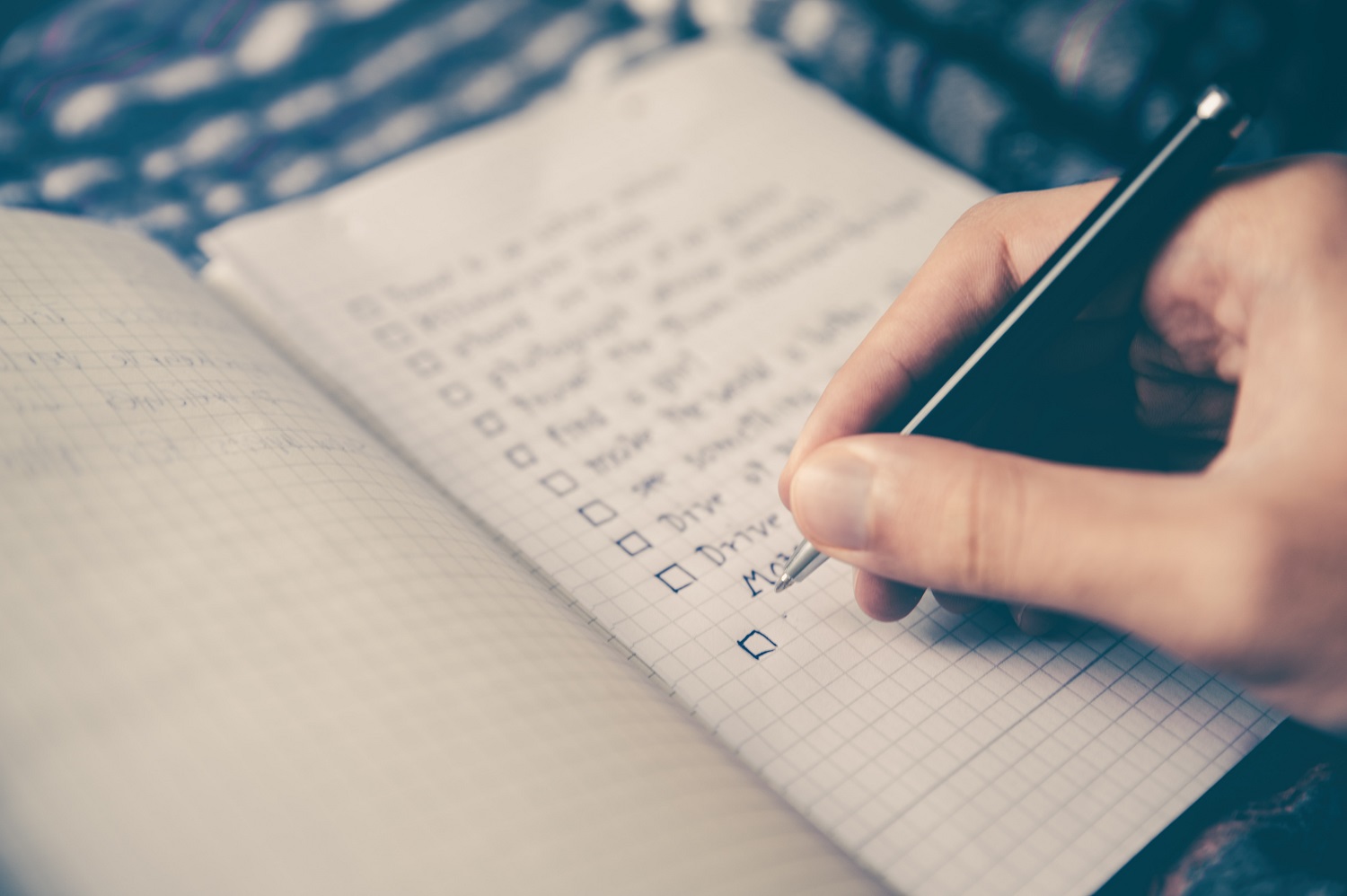How to Take Effective Notes in College Lectures

Effective note-taking is a crucial skill for college students to succeed academically. Attending lectures and taking detailed notes can help you make the most out of your college experience. However, without proper lecture techniques and note-taking strategies, you may risk missing important information that can affect your grades and academic performance. In this section, we will explore the essential techniques to take effective notes in college lectures, helping you achieve academic success.
Key Takeaways:
- Effective note-taking is crucial for academic success in college.
- Proper lecture techniques can help you retain vital information during lectures.
- Organizing your notes is essential to structure your notes coherently.
- Technology offers various tools to take notes digitally.
- Your notes can serve as an effective study resource for exam preparation.
Note-Taking Strategies for College Students
Contents
- 1 Note-Taking Strategies for College Students
- 2 Active Listening Techniques in College Lectures
- 3 The Importance of Organization in Note-Taking
- 4 Effective Learning Strategies for College Students
- 5 Study Skills for College Success
- 6 Effective Note-Taking Strategies for Different Learning Styles
- 7 Using Technology in Note-Taking
- 8 The Role of Effective Note-Taking in Exam Preparation
- 9 Strategies for Effective Studying in College
- 10 Conclusion
- 11 FAQ
Effective note-taking is a crucial skill for college students. It can help you organize information, retain important details, and review material effectively. In this section, we will discuss various note-taking strategies that can help you maximize your learning potential and excel in your studies.
Cornell Method
The Cornell Method is a popular note-taking technique that involves dividing your page into three sections: one for notes, one for key points, and another for a summary. This method can help you better organize your notes and identify important details quickly.
| Advantages | Disadvantages |
|---|---|
| Clear and organized notes | Time-consuming to create |
| Easy to review and study from | May not work for all types of lectures |
Mind Mapping
Mind Mapping is a visual note-taking technique that can help you connect concepts and ideas, making it easier to retain information. To create a mind map, start with a central topic and branch out to other related topics, linking them together with lines and keywords.
Example:

Outlining
Outlining is a structured note-taking technique that involves organizing information into a hierarchical format, with main topics and subtopics identified. This method can help you organize complex information and identify relationships between different concepts.
“Outlining makes the process of summarizing and reviewing longer material much easier. A well-organized outline can save you time by helping you identify the key points or ideas from the beginning of the material and making it easier to recall them later on.”
Charting
Charting is a note-taking technique that involves organizing information into tables or matrices. This method can be particularly useful for tracking data or comparing and contrasting information.
Example:
| Types of Renewable Energy | Advantages | Disadvantages |
|---|---|---|
| Solar | Clean and renewable energy source | High initial investment |
| Wind | No greenhouse gas emissions | Intermittent energy source |
| Hydroelectric | Highly efficient source of energy | Can disrupt natural waterways |
These are just a few note-taking strategies that you can use to enhance your learning. Experiment with different methods and find the one that works best for you. Remember, effective note-taking is an essential tool for academic success in college!

How to Take Effective Notes in College Lectures
Active Listening Techniques in College Lectures
Being an active listener is crucial to taking effective notes in college lectures. Active listening involves staying engaged, asking questions, and identifying key points. By employing these techniques, you’ll be able to better retain information, keep up with the lecture, and take more effective notes.
Staying Engaged
To be an active listener, it’s important to stay engaged throughout the lecture. This means avoiding distractions such as your phone, social media, or other students. You can also take steps to stay mentally focused, such as getting enough sleep before class, having a healthy breakfast, and staying hydrated.
Asking Questions
Asking questions is another essential part of active listening. Don’t be afraid to raise your hand and ask the professor to clarify a point or provide more information. This will not only help you understand the material better but also show the professor that you’re actively engaged in the lecture.
Identifying Key Points
Identifying key points is crucial to taking effective notes. This involves paying close attention to the lecture and recognizing the most important information. You can do this by looking for cues from the professor such as verbal emphasis, repetition, or changes in tone. You can also identify key points by listening for content related to the course objectives, homework assignments, or upcoming exams.
| Active Listening Techniques | Benefits |
|---|---|
| Staying Engaged | Increased focus and attention |
| Asking Questions | Better understanding of material |
| Identifying Key Points | More effective note-taking |
“Listening is a skill that not everyone possesses. Active listening is even rarer. If you want to excel in college, you need to hone your listening skills and become an active listener.”
Conclusion
Active listening techniques are essential to effective note-taking in college lectures. By staying engaged, asking questions, and identifying key points, you can optimize your learning and get the most out of your college experience.
The Importance of Organization in Note-Taking
Note-taking is an essential part of the learning process in college. However, note-taking alone is not enough to achieve academic success. To make the most out of your notes, you must organize them effectively. Proper organization helps you review material efficiently, improve your recall, and prepare for exams. Here are some techniques to help you organize your notes:
Outlining
Outlining is a classic method of organizing notes. It involves grouping similar ideas and concepts into hierarchical structures, using bullet points and indentation to denote levels of importance. Outlining is effective because it helps you visualize the relationships between different topics and subtopics, making it easier to recall information during exams. Consider using outlining if you’re a visual learner who benefits from seeing the big picture.
Using Headings
Using headings is another useful way to organize your notes. Headings are like signposts that label the major topics and ideas in your notes. They make it easy to scan through your notes and find the information you need quickly. Use headings to break down your notes into manageable sections and highlight the key takeaways.
Creating Visual Aids
Visual aids make it easier to remember complex concepts and relationships. Try using diagrams, flowcharts, and mind maps to create visual representations of the information in your notes. Visual aids help you see the big picture and identify patterns and connections between different topics. They also make your notes more engaging and memorable.
Comparative Tables
| Benefits of Organization in Note-Taking | Benefits of Unorganized Note-Taking |
|---|---|
| Facilitates exam review | Exam review is challenging and time-consuming |
| Improves information retention | Information retention is challenging |
| Provides a clear overview of the material | Lack of organization leads to confusion and overwhelm |
| Enables efficient revision | Revision is challenging and takes longer than necessary |
Organizing your notes can seem overwhelming, but it pays off in the long run. Not only does it help you perform better in exams, but it also makes your notes more engaging and memorable. Try experimenting with different techniques to find the ones that work best for you. Remember, effective organization is the key to successful note-taking.
Effective Learning Strategies for College Students
College is a time for learning, growing, and expanding your knowledge and skills. To make the most of your college experience, it’s important to develop effective learning strategies that will help you achieve your goals and succeed in your studies. Here are some tips to help you optimize your learning and reach your full potential:
- Prioritize your goals: Identify your short-term and long-term goals and make a plan to achieve them. Break larger goals into smaller, measurable tasks to make them more achievable. Make sure your goals are realistic and relevant to your interests and aspirations.
- Manage your time: Effective time management is key to success in college. Develop a schedule that includes time for studying, attending class, and extracurricular activities. Use a planner or calendar to stay organized and keep track of your tasks and deadlines.
- Practice active recall: Active recall involves actively engaging with the material you’re trying to learn, rather than simply passively reading or listening. Test yourself on the material by taking practice quizzes, summarizing key concepts in your own words, or teaching the material to someone else.
- Employ mnemonic devices: Mnemonic devices are memory aids that can help you remember information more easily. Examples include acronyms, rhymes, and visualization. Use mnemonic devices to help you remember key terms, formulas, or concepts.
- Utilize technology: Technology can be a valuable tool for learning and studying. Use apps, online resources, and study tools to supplement your learning and enhance your understanding of the material.
- Collaborate with peers: Studying with peers can be an effective way to learn and retain information. Work on group projects, discuss course material, or form a study group to share knowledge and ideas.
- Get enough rest: Sleep is essential for learning and memory consolidation. Make sure you’re getting enough rest each night to optimize your cognitive function and academic performance.
- Stay engaged: Actively participate in class by asking questions, taking notes, and engaging with your professor and peers. This will help you stay focused and retain important information.
By incorporating these effective learning strategies into your routine, you will be well on your way to academic success and personal growth in college. Remember to prioritize your goals, manage your time effectively, and engage with the material actively to make the most of your college experience.
Study Skills for College Success
Having effective study skills is crucial for achieving college success. In this section, we will explore various techniques that can help you develop strong study habits, improve your comprehension, and boost your performance on exams. By implementing these strategies, you can maximize your learning potential and achieve your academic goals.
Creating a Study Plan
One of the keys to effective studying is to have a plan. Creating a schedule that outlines your study goals and breaks down your tasks into manageable chunks can help you stay focused, organized, and motivated. When creating your study plan, consider the following:
- Set specific goals: Identify what you want to achieve in each study session, such as mastering a particular concept or completing a set of practice problems.
- Establish a routine: Set a regular study schedule and stick to it. This will help you create a habit and make studying a natural part of your day.
- Prioritize: Focus on studying the most important and challenging material first, rather than leaving it to the end.
Active Learning
Active learning involves engaging with the material rather than passively reading or listening. This technique can help you retain more information and develop a deeper understanding of the subject matter. Here are some ways to practice active learning:
- Ask questions: Rather than simply accepting the information presented to you, ask questions to clarify your understanding and stimulate critical thinking.
- Take notes: Taking detailed notes can help you organize information and retain it more effectively. See our previous sections for tips on effective note-taking techniques.
- Practice: Applying what you have learned through practice problems, quizzes, and other exercises can help you solidify your understanding and reinforce important concepts.
Effective Time Management
Managing your time effectively is essential for college success. By balancing your academic responsibilities with other obligations and activities, you can minimize stress and maximize your productivity. Here are some tips for effective time management:
- Set priorities: Determine which tasks are most important and allocate your time accordingly.
- Eliminate distractions: Avoid distractions such as social media, television, or other non-academic activities during study time.
- Take breaks: Taking regular breaks can help you stay focused and avoid burnout. Consider taking a short walk or engaging in another physical activity.
Effective Test-Taking Strategies
Effective test-taking involves more than just studying material beforehand. Employing the right strategies during exams can help you perform at your best. Here are some test-taking tips:
- Read questions carefully: Ensure that you understand the question before answering it. Look for keywords and consider the context of the question.
- Manage your time: Budget your time throughout the exam to ensure that you have enough time to answer all questions.
- Show your work: Show your work on math problems or other quantitative questions to demonstrate your thought process and ensure that you receive partial credit.
Conclusion
Developing strong study skills is essential for college success. By creating a study plan, practicing active learning, managing your time effectively, and employing effective test-taking strategies, you can optimize your learning experience and achieve your academic goals.
Effective Note-Taking Strategies for Different Learning Styles
People have different learning styles and preferences, and this applies to note-taking as well. Tailoring your note-taking strategies to your individual learning style can significantly enhance your understanding and retention of information. Here are some effective note-taking strategies for visual learners, auditory learners, and kinesthetic learners:
Note-Taking Strategies for Visual Learners
Visual learners process information best through images, diagrams, and other visual aids. If you’re a visual learner, try the following note-taking strategies:
- Create mind maps or diagrams to organize information
- Use color coding to highlight key points
- Draw pictures or symbols to represent ideas
- Record visual information, such as graphs or charts, on your notes
Note-Taking Strategies for Auditory Learners
Auditory learners tend to process information best through sounds and spoken words. If you’re an auditory learner, try the following note-taking strategies:
- Record lectures or discussions to listen to later
- Write down key words and phrases that summarize the main points
- Use mnemonics or acronyms to remember important information
- Verbally recite your notes to reinforce your memory
Note-Taking Strategies for Kinesthetic Learners
Kinesthetic learners learn best through physical movement and hands-on activities. If you’re a kinesthetic learner, try the following note-taking strategies:
- Engage in hands-on activities, such as drawing or creating models, to reinforce your understanding
- Take breaks to move around and stay alert
- Use tactile methods, such as highlighting and underlining, to emphasize important information
- Write down notes while standing or walking around to stay engaged
Using Technology in Note-Taking
Technology has made note-taking more efficient and convenient than ever before. The digital age has brought about a range of tools and applications that can streamline your note-taking process and offer more flexibility in how you organize and access your notes. Here are some ways you can use technology to enhance your note-taking:
Note-Taking Apps
One of the most popular ways to take notes digitally is by using note-taking apps. These apps allow you to type, draw, and organize your notes all in one place. Some popular note-taking apps include Evernote, OneNote, and Google Keep. With these apps, you can easily search and tag your notes, access them from any device, and even share them with others.
Recording Lectures
If you prefer to listen and absorb information, recording lectures might be a useful option for you. This way, you can focus on the lecture without worrying about taking notes and later listen to the recording to take your notes. However, make sure to ask for permission from the lecturer first and seek guidance on any institutional policies about recording lectures. Also, consider investing in a portable recorder or an app that can record audio.
Utilizing Online Resources
Online resources, such as e-books, video tutorials, and educational websites, can be great supplements to traditional note-taking methods. Sometimes information can be presented in a way that better suits an individual’s learning style. These resources can also provide additional examples and explanations for complex topics that may not be covered in class. However, always verify that the source is credible and relevant to your studies.
Organizing Your Digital Notes
Even though digital note-taking can be more flexible, it is still crucial to organize your notes in a coherent manner. You can use headings, subheadings, bullet points, numbering, or color-coding to structure the content. This process will not only help you review and revise your notes more efficiently, but it will also help you retain the information better.
Technology has expanded the possibilities for how we take and use notes in college. By leveraging digital tools, you can improve your note-taking skills and optimize your learning potential. However, remember to find the right balance between technology and traditional note-taking methods, as each student has their preference, and not all digital options are beneficial for everyone.

Effective Notes in College Lectures
The Role of Effective Note-Taking in Exam Preparation
Effective note-taking skills are essential for success in college, especially when it comes to exam preparation. By taking notes that are well-organized, concise, and clear, students can review and revise key concepts before exams, improving their performance. In this section, we will explore strategies for effective note-taking that can help students prepare for exams with confidence.
Summarizing Your Notes
Summarizing your notes is a powerful tool for exam preparation. By condensing your notes into brief, easy-to-digest summaries, you can review key concepts quickly and efficiently. This technique is particularly useful for long, complex lectures or for reviewing a large volume of material before an exam.
Here is an example of how to summarize your notes:
| Original Note: | The French Revolution began in 1789 and lasted for 10 years. The revolution was sparked by a variety of factors, including rising taxes, economic hardships, and political corruption. The revolutionaries overthrew the monarchy and established a republic, but the period of instability that followed was marked by violence and chaos. |
|---|---|
| Summary: | The French Revolution: 1789-99; factors: taxes, economic hardship, political corruption; overthrew monarchy, established republic; period of instability marked by violence and chaos. |
Creating Study Guides
Creating a study guide is an excellent way to organize your notes and review key concepts. A study guide typically includes a list of topics or concepts, with corresponding information from your notes. You can create your study guide by hand or use digital tools, such as online note-taking apps or software programs.
Here is an example of a study guide:
- The French Revolution
- Causes: rising taxes, economic hardship, political corruption
- Events: overthrow of monarchy, establishment of republic
- Impact: period of instability marked by violence and chaos
- Industrial Revolution
- Causes: technological advancements, new economic systems
- Effects: increased production, urbanization, social and economic changes
Utilizing Mnemonic Devices
Mnemonic devices are memory aids that can help you remember important information more easily. There are many different mnemonic devices you can use, such as acronyms, rhymes, and visual associations.
Here is an example of a mnemonic device:
- Mnemonic: Roy G. Biv
- Meaning: Red, Orange, Yellow, Green, Blue, Indigo, Violet (colors of the rainbow)
By utilizing these effective note-taking strategies, students can optimize their exam preparation and achieve better results. Summarizing notes, creating study guides, and utilizing mnemonic devices are just a few of the many techniques that can help students succeed in college.
Strategies for Effective Studying in College
Effective studying is essential for college students who want to achieve academic success. The key to effective studying is to adopt proven strategies that enable you to learn better, manage your time wisely, and stay motivated. In this section, we will explore various strategies that can help you study effectively in college.
1. Create a Conducive Study Environment
Creating a conducive study environment is crucial for effective learning. Choose a quiet and comfortable place to study, free from distractions such as television and social media. Ensure that the lighting is adequate and the temperature is comfortable. Organize your study materials, including your notes, textbooks, and study aids, in a neat and orderly manner.
2. Practice Active Learning
Active learning involves actively engaging with the material you are studying. To practice active learning, take notes while you read and write summaries of the material in your own words. Visualize the information by creating diagrams and flowcharts. Discuss the material with classmates or professors, ask questions, and seek clarifications.
3. Utilize Effective Time Management Techniques
Effective time management is crucial for college students who want to balance their academic, personal, and social lives. Use a planner or calendar to organize your schedule, set realistic goals, and prioritize your tasks. Break your study sessions into manageable chunks, and take breaks to avoid burnout. Avoid procrastination by starting your assignments early and submitting them well before the deadline.
4. Leverage Technology
Technology offers a wide range of tools and resources that can aid in effective studying. Use educational software, such as flashcard apps and online quizzes, to test your knowledge and retain essential information. Use note-taking apps to organize your notes and make them easily accessible. Access online resources, such as academic journals and research databases, to enhance your understanding of the subject matter.
5. Seek Help When Necessary
College students can benefit greatly from seeking help when they need it. Don’t hesitate to reach out to your professors, tutors, or academic advisors when you are struggling with your coursework. Attend study groups, join academic clubs, and seek mentorship from upperclassmen. These resources can provide valuable insights, feedback, and support.
6. Practice Self-Care
Practicing self-care is essential for college students who want to achieve academic success. Get enough sleep, exercise regularly, and eat a balanced diet. Take breaks to relax and engage in hobbies that you enjoy. Manage stress through mindfulness techniques, such as meditation and deep breathing. By taking care of your mental and physical health, you can boost your energy, focus, and motivation.
By adopting these strategies, you can optimize your study routine and achieve academic success in college.
Conclusion
Taking effective notes is a critical part of the learning process for college students. By employing the note-taking techniques discussed in this article, you can boost your understanding, retention, and academic success.
In addition to note-taking, it is essential to employ other proven learning strategies, such as active listening, effective organization, and study skill development. By creating a conducive study environment, managing your time, and utilizing technology, you can optimize your learning potential and achieve better results.
Remember to tailor your note-taking strategies to your preferred learning style, whether you are a visual, auditory, or kinesthetic learner. By adapting your note-taking accordingly, you can ensure that you are capturing and retaining important information in a way that works best for you.
In conclusion, effective note-taking is a skill that can take your college journey to the next level. Use the strategies outlined in this article to transform your study routine and pave the way to academic success.
FAQ
How can I improve my note-taking skills in college lectures?
To enhance your note-taking skills, consider using techniques such as active listening, effective organization, and utilizing technology. By staying engaged during lectures, structuring your notes, and leveraging digital tools, you can optimize your note-taking abilities and improve your academic performance.
What are some effective note-taking strategies for college students?
College students can employ various note-taking strategies, including Cornell Method, mind mapping, and the outline method. These techniques can help you organize information, highlight key concepts, and facilitate easier review and studying of your notes.
How can I improve my active listening skills in college lectures?
To improve your active listening skills, try techniques such as staying engaged, taking concise notes, and asking questions. By maintaining focus, capturing important details, and clarifying any confusion, you can enhance your understanding and retention of the lecture material.
Why is organization important in note-taking?
Organization is crucial in note-taking as it helps you structure and categorize information effectively. By using headings, creating outlines, and incorporating visual aids, you can easily navigate through your notes, identify key points, and review the material efficiently.
What are some effective learning strategies for college students?
In addition to taking effective notes, college students can benefit from strategies such as goal-setting, time management, and active recall. By setting clear objectives, managing your time effectively, and regularly testing your knowledge, you can optimize your learning experience and achieve better academic outcomes.
What study skills can help me succeed in college?
Developing strong study skills is essential for college success. Techniques such as creating flashcards, using mnemonic devices, and practicing self-testing can enhance comprehension, retention, and performance on exams. By incorporating these study skills into your routine, you can maximize your understanding and recall of the material.
How can I adapt note-taking strategies to suit my learning style?
Different individuals have different learning styles. For visual learners, using diagrams and highlighting key points can be beneficial. Auditory learners may find it useful to record lectures and listen to them later. Kinesthetic learners can engage in hands-on activities while taking notes. Adapting note-taking strategies to your learning style can enhance your understanding and retention of information.
What are the benefits of using technology in note-taking?
Technology offers numerous advantages in note-taking. Utilizing note-taking apps, recording lectures, and accessing online resources can streamline the process, facilitate easy organization and retrieval of information, and provide convenient accessibility to your study materials.
How can effective note-taking help in exam preparation?
Effective note-taking serves as a valuable study resource during exam preparation. By summarizing your notes, creating study guides, and using mnemonic devices to reinforce key concepts, you can enhance your understanding, revision, and performance on exams.
What strategies can I use to study effectively in college?
To study effectively in college, create a conducive study environment, practice active learning by engaging with the material, and utilize effective time management techniques. By optimizing your study routine and employing these strategies, you can improve your comprehension, retention, and ultimately achieve better results.
![]() Effective Notes, Lecture Techniques, College, Note-Taking Strategies, Active Listening, Study Skills, Effective Learning, Academic Success, College Success, Effective Studying
Effective Notes, Lecture Techniques, College, Note-Taking Strategies, Active Listening, Study Skills, Effective Learning, Academic Success, College Success, Effective Studying



9 Comments
Master Your Essays With Tips For Effective Academic Writing · October 28, 2023 at 10:33 pm
[…] Effective writing strategies and academic writing techniques are crucial in achieving success in essays. Before diving into the tips and guidelines for improving academic writing, it’s crucial to understand what academic writing means. […]
How To Prioritize Tasks In College · October 28, 2023 at 11:02 pm
[…] is a common issue that many college students face when trying to prioritize tasks and manage their time effectively. It can be caused by a variety of factors, including anxiety, […]
Tips For Balancing Academics And Extracurriculars · October 28, 2023 at 11:02 pm
[…] calendar to keep track of your schedule and avoid overcommitting yourself. Time blocking is another effective technique to ensure that you have enough time for both academics and […]
Unlock Success: Steps To Improve Academic Writing Skills · October 28, 2023 at 11:25 pm
[…] the effective use of evidence and examples to support arguments. In this section, we will explore techniques to enhance writing skills in academia by incorporating effective evidence and examples. By following these steps, you can improve the quality and credibility of […]
Avoiding Plagiarism In Academic Essays · November 2, 2023 at 6:52 am
[…] conclusion, embracing perplexity through effective note-taking strategies can reduce the risk of unintentional plagiarism while simultaneously […]
Creating A Study Schedule For College Success · November 2, 2023 at 9:08 am
[…] blocking is a popular technique for effective time management. It involves dividing your day into specific time blocks dedicated to different […]
Creating A Coherent Body Paragraph In A College Essay · November 2, 2023 at 9:14 am
[…] your body paragraphs is a crucial step in ensuring the coherence and effectiveness of your college essay. By carefully reviewing and revising your paragraphs, you can strengthen the logical […]
Balancing Personal Experiences And Academic Achievements In A College Essay · November 6, 2023 at 10:33 am
[…] committee wants to see how you can contribute intellectually to their campus.” – College Admissions […]
Avoid Plagiarism In College Essay - Essential Tips And Tricks · November 6, 2023 at 10:40 am
[…] citing sources, maintaining originality, and utilizing effective paraphrasing techniques are some of the essential strategies to avoid […]